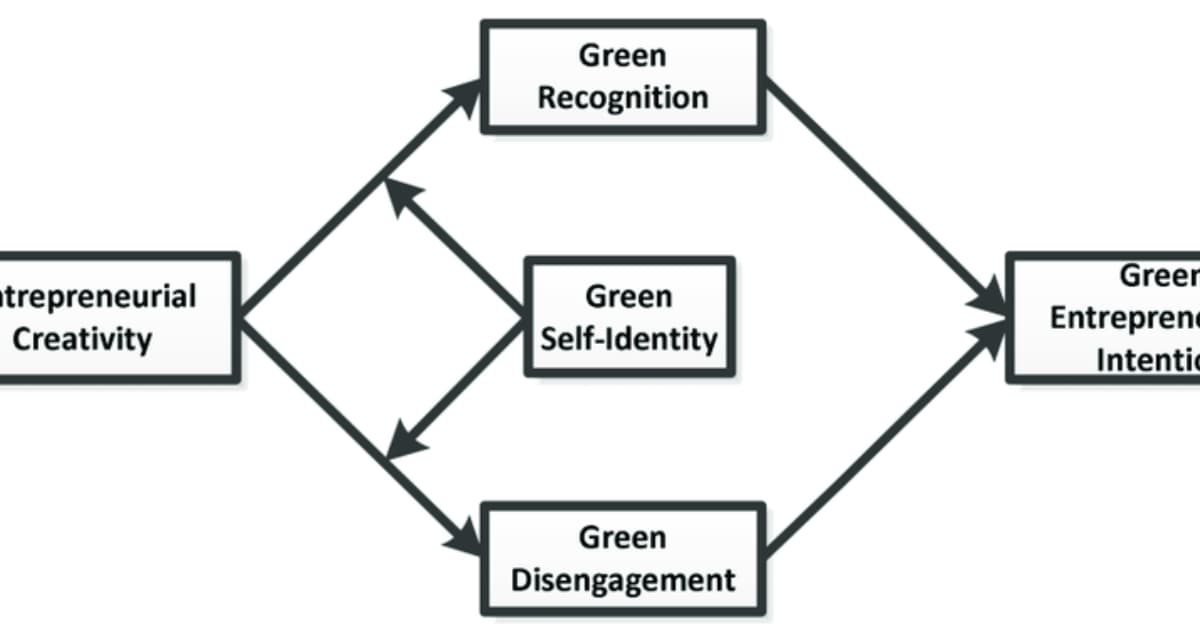Welcome to the world of freelancing
Explore the journey from Side Hustle to Main Gig and unlock your potential within the gig economy for Entrepreneurial Pathways If you’re ready to embrace the freelance lifestyle and unlock the doors to freelance success, then this article is for you.
Freelancing offers a unique pathway to entrepreneurship, providing the freedom and flexibility to create your own career. Whether you’re a writer, designer, developer, or consultant, the freelance industry is overflowing with opportunities to showcase your skills and carve your own path to success. But how exactly do you navigate this entrepreneurial journey within the world of freelancing? Let’s explore.
Key Takeaways about Entrepreneurial Pathways
- Transitioning from a side hustle to a main gig is possible in the freelance industry.
- The gig economy offers numerous opportunities for building a successful freelance career.
- Effective strategies for managing side hustles alongside full-time freelance work are crucial.
- Building a thriving freelance business requires setting financial goals and establishing a brand.
- Achieving work-life balance is essential to maintaining a healthy freelance lifestyle.
Embracing the Gig Economy

One of the key advantages of the gig economy is the flexibility it offers. Freelancers can take on multiple projects from different clients, allowing them to diversify their income streams and explore various areas of interest. This flexibility not only provides financial stability but also allows for personal and professional growth.
When it comes to managing side hustles, strategic planning plays a crucial role. Here are some useful strategies for freelancers to effectively balance their workload:
- Time Management: Set clear priorities and establish a schedule that allows for sufficient time to dedicate to each project. Utilize productivity tools and techniques to optimize your working hours.
- Client Communication: Maintain open and transparent communication with your clients, ensuring they are aware of your availability and any schedule limitations.
- Project Planning: Break down projects into manageable tasks and create a structured plan to efficiently complete each task within the given timeframe.
“Successfully managing multiple side hustles requires careful planning, effective time management, and open communication with clients. By implementing these strategies, freelancers can embrace the gig economy and build thriving careers.”
Freelancers should also consider investing in their professional development to stay relevant and competitive in the gig economy. Continuous learning and upgrading skills are vital to adapt to changing industry trends and meet client expectations.
Ultimately, embracing the gig economy enables freelancers to carve their own paths and create fulfilling and prosperous freelance careers. By implementing effective side hustle strategies, freelancers can strike a balance between multiple projects while maximizing their income and professional growth.
Entrepreneurial Pathways: Building Your Freelance Business
When it comes to freelance success, taking the entrepreneurial path is key. Building a thriving freelance business requires careful planning, determination, and strategic decision-making. In this section, we’ll explore essential insights and valuable tips to help you establish yourself as a successful freelancer.
Setting Financial Goals
One of the first steps in building your freelance business is setting clear financial goals. By defining your financial objectives, you can create a roadmap to drive your career forward. Consider factors such as your desired income, expenses, and savings. Setting realistic and measurable goals will keep you motivated and focused on your long-term success.
Entrepreneurial Pathways: Establishing a Strong Brand
To stand out in a competitive freelance market, establishing a strong personal brand is crucial. Your brand represents your unique identity and the value you bring to clients. Invest time in crafting a compelling brand message, designing a professional logo, and creating a visually appealing portfolio. Consistency in your branding across all platforms will build trust and attract potential clients.
Navigating the Challenges of Self-Employment
As an entrepreneur in the freelance world, you’ll face various challenges. From managing finances to self-discipline, it’s essential to develop the skills and mindset necessary for success. Embrace flexibility, stay organized, and prioritize client satisfaction. By continuously honing your abilities and adapting to new trends, you can overcome obstacles and achieve freelance success.
Quotes:
“Building a thriving freelance business requires both passion and dedication. It’s about creating your own path and taking control of your professional destiny.” – Jane Smith, Freelance Consultant
Entrepreneurial Pathways: The Advantages of Entrepreneurship Path in Freelancing:
- Flexibility to choose projects and clients that align with your skills and interests
- Potential for higher income and financial growth through scalable business models
- Opportunity to create your own schedule and work on your terms
- Freedom to explore and expand your skill set in different areas
- Ability to build a tangible asset that can be sold or scaled in the future
Building your freelance business requires dedication and a strategic approach. Embrace the entrepreneurial path, set clear financial goals, establish a strong brand, and navigate the challenges of self-employment. By doing so, you’ll be well on your way to achieving freelance success.
Balancing Work and Life in the Gig Economy
As freelancers navigate the gig economy, finding a balance between work and personal life becomes crucial. The freelance lifestyle offers flexibility and independence, but it can also blur the lines between work and leisure. To maintain a healthy and sustainable freelance career, here are some strategies to consider:
1. Effective Time Management
One of the keys to achieving work-life balance as a freelancer is effective time management. Plan your work schedule in advance, allocating specific blocks of time for different tasks and projects. Use productivity tools and techniques such as Pomodoro Technique or time-blocking to stay focused and avoid burnout.
2. Set Boundaries
Establishing boundaries is essential to prevent work from encroaching on your personal life. Clearly define your working hours and communicate them to clients, setting expectations for when you’ll be available for work-related activities. Learn to say no to additional tasks or projects that would disrupt your work-life balance.
3. Prioritize Self-Care
Amidst the hustle and bustle of freelance life, don’t neglect your well-being. Make self-care a priority by setting aside time for physical exercise, relaxation, and hobbies. Taking care of yourself will enhance your productivity and overall satisfaction, allowing you to bring your best self to both work and personal life.
4. Seek Support and Collaboration
Don’t hesitate to seek support and collaborate with fellow freelancers or join communities related to your industry. Connecting with others who understand the freelance lifestyle can provide valuable insights, advice, and a sense of camaraderie. Collaborating on projects can also help distribute workload and provide opportunities for growth.
“Achieving work-life balance in the gig economy is essential for long-term success as a freelancer. By implementing effective time management strategies, setting boundaries, prioritizing self-care, and seeking support, you can create a sustainable freelance lifestyle that aligns with your personal and professional goals.”
Entrepreneurial Pathways: Summary
In the gig economy, freelancers must proactively strive for work-life balance to maintain their well-being and ensure the longevity of their freelance careers. Through effective time management, setting boundaries, prioritizing self-care, and seeking support, freelancers can create a fulfilling freelance lifestyle that harmonizes work and personal life.
| Tip | Description |
|---|---|
| 1. Schedule Downtime | Block off time in your schedule for relaxation and leisure activities, just like you would for work tasks. |
| 2. Unplug Regularly | Dedicate periods of time when you disconnect from work-related activities, such as turning off notifications outside of working hours. |
| 3. Delegate and Outsource | Consider delegating or outsourcing tasks that can be handled by others, allowing you to focus on core responsibilities. |
| 4. Establish Rituals | Create rituals or routines that signify transition points between work and personal life, helping you switch off from work mode. |
Outsourcing and Delegating
As your freelance business grows, you may find it necessary to outsource or delegate certain tasks to manage your workload effectively. Here’s how you can do it:
- Identify areas for delegation: Assess your daily tasks and identify areas that can be delegated without compromising quality. This might include administrative tasks, content creation, or customer support.
- Find reliable freelancers or virtual assistants: Seek out talented freelancers or virtual assistants who can assist you with your workload. Use reputable platforms to find professionals with the skills and experience you need.
- Establish clear communication: Clearly communicate your expectations, deadlines, and project requirements to ensure a smooth collaboration with your outsourced team members.
- Focus on client relationships: By delegating operational tasks, you can devote more time and energy to building strong relationships with your clients and delivering exceptional work.
By implementing these strategies, you can scale your freelance business, increase your earnings, and establish yourself as a trusted expert in your field. Embrace the entrepreneurial pathways available within the gig economy and create the freelance career of your dreams.
| Benefits of Scaling Your Freelance Business | Challenges of Scaling Your Freelance Business |
|---|---|
| 1. Increased earning potential | 1. Finding reliable talent to outsource to |
| 2. Diversified income streams | 2. Balancing workload and client expectations |
| 3. Enhanced professional reputation | 3. Managing growth and maintaining quality |
| 4. More opportunities for collaboration | 4. Adapting to evolving market demands |
Conclusion about Entrepreneurial Pathways
Transitioning from a side hustle to a main gig in the freelance industry can open up new possibilities and provide long-term career success. The gig economy has created a thriving ecosystem for freelancers, offering numerous entrepreneurial pathways to explore. By embracing the gig economy and leveraging effective side hustle strategies, freelancers can not only establish a freelance career but also thrive in the ever-evolving business landscape.
FAQ
What is freelancing?

Entrepreneurial Pathways: What is the gig economy?
The gig economy refers to a labor market characterized by short-term, freelance, or independent work engagements. It is driven by the demand for flexible work arrangements and facilitated by online platforms that connect freelancers with clients needing specific services.
How can I transition from a side hustle to a main gig in freelancing?
Transitioning from a side hustle to a main gig requires careful planning and consistent effort. Some strategies include gradually increasing your client base, setting financial goals, improving your skills, and strategically marketing yourself to attract higher-paying clients.
Entrepreneurial Pathways: How can I balance my work and personal life as a freelancer?
Balancing work and personal life as a freelancer can be challenging, but it’s important for your well-being. Some tips include setting boundaries, organizing your schedule effectively, prioritizing self-care, and outsourcing tasks when necessary.
What are some effective strategies for building a freelance business?
Building a successful freelance business involves setting clear goals, creating a strong brand, networking with potential clients, continuously improving your skills, and providing exceptional customer service. It’s also important to invest time in marketing yourself and adapting to industry trends.
Entrepreneurial Pathways: How can I scale my freelance business?
Scaling your freelance business involves expanding your services, securing higher-paying clients, and strategically outsourcing tasks to meet growing demand. It’s crucial to maintain a consistent level of quality in your work while managing your resources effectively.

